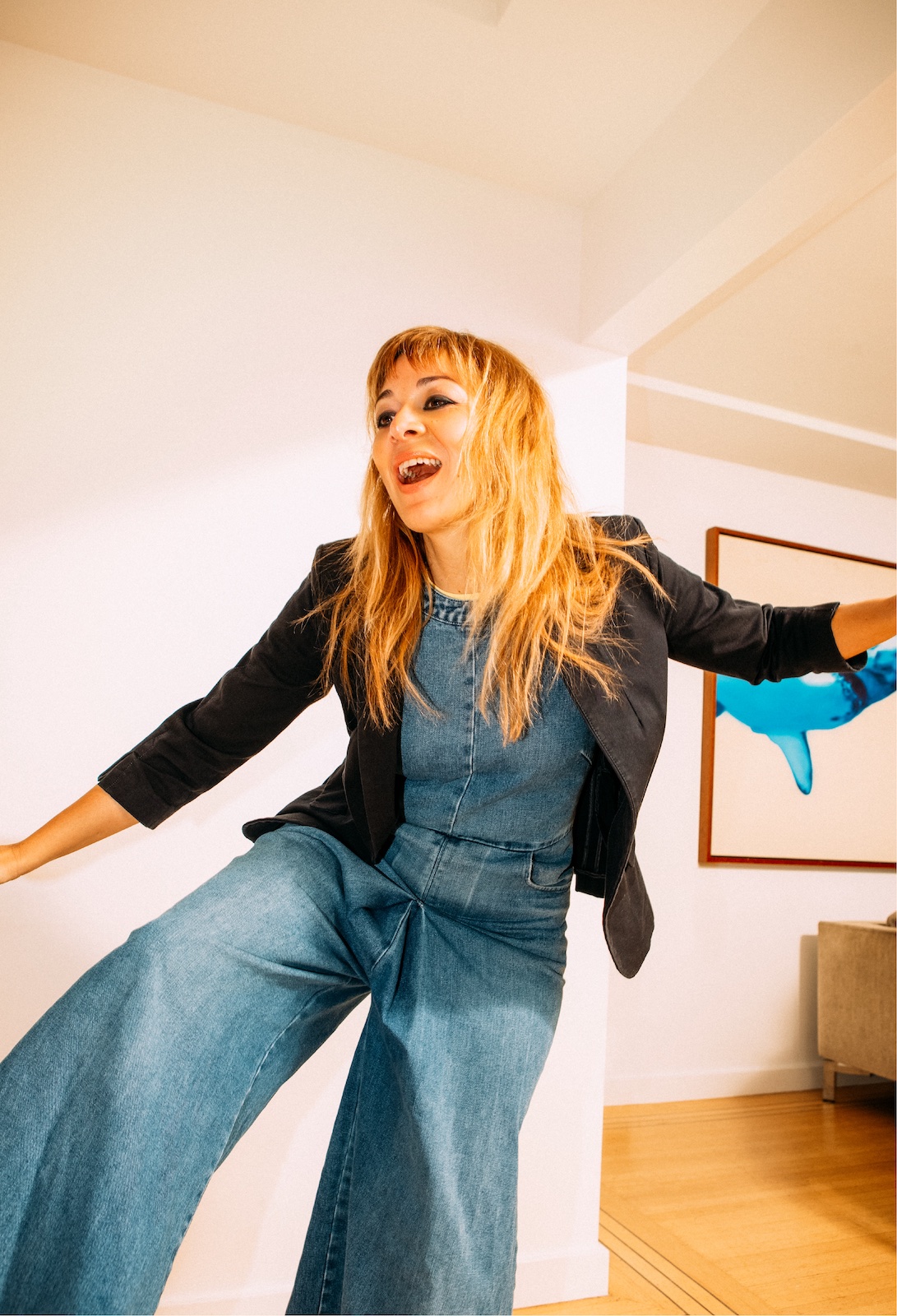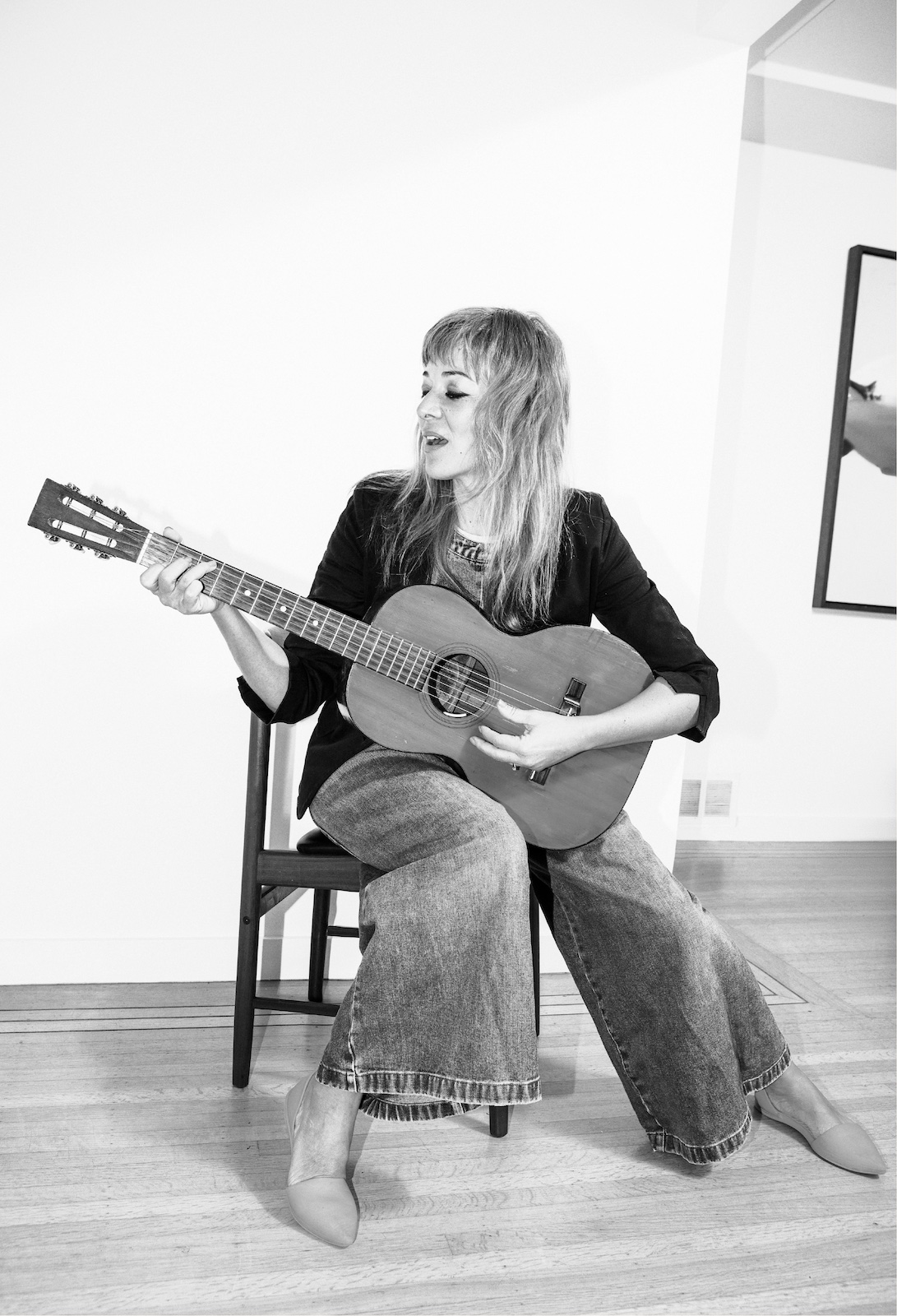Jill Barber smiles, folding her arms on the table tucked in the back corner of Aleph Eatery, a Middle Eastern café not far from where she lives in East Vancouver. She has just returned from performing in Austria, and her family has little rituals to welcome her home. Usually, her children make her a sign. This time, she was greeted by an Austrian flag, hand-drawn by her nine-year-old son, Joshua. The time before, Barber had been in France, so her six-year-old daughter, Grace, drew the Eiffel Tower. Barber’s husband, author and CBC broadcaster Grant Lawrence, helps them.
Of course, for Barber, a prolific artist whose critically acclaimed singer-songwriter career spans 20 years, home is also the stage. Her smoky voice shapeshifts seamlessly between folk, pop, and vocal jazz. She sings in both English and French, and has been nominated for Juno awards. When she opened for Kris Kristofferson in 2006, he told the audience she was “a real songwriter” and “a damn good songwriter.”

On her new album, Homemaker, Barber returns to the folk sound that defined her early career, heard on 2004’s Oh Heart and its follow-up, For All Time. The arrangements are minimal, with strings and plucks of banjo adding subtle yet profound depth. It’s the first time she has embraced the title of producer, and her goal was to craft a warm and present musical landscape in which the songs could exist. Her voice is different now. It’s as sweetly alluring but edged with experience. It’s the voice of a wife and mother and hardworking musician and someone who is all those things at once.
In choosing her album title, Barber pushes back against the idea that being a “homemaker” is antiquated or regressive. Instead, it celebrates the term in all its complexity. “I really think a homemaker is anybody who provides a safe place for other people to just be themselves,” Barber says, when I ask how she defines it. “I obviously sing and write a lot about specifically what it is to be a mother, but I really think this definition, in my mind anyway, expands well beyond just being a parent. It’s people that take care of other people, you know? People that create a shelter or a safe place to land or return to.”
Barber was fortunate, she says, to have experienced that kind of sanctuary as a child. Born in Port Credit, Ontario, Barber and her older brother, Matthew, grew up in a little house with a big backyard. She walked to school each day. Their father was a university professor, and their mother stayed home to raise them. It was a safe, secure, happy, loving childhood. “We never had too much, never had too little. It was pretty idyllic, I guess I would say. I know it doesn’t make for a good story, but it’s the truth.”
Barber adds, “Privilege is a really—obviously—popular word, and that’s exactly what it is. I’ve lived a privileged life. I remind myself often that I have tools because they were given to me at a young age. I have tools to cope and to function that not everybody has.”

Part of the reason Barber felt compelled to make Homemaker was to shine light on the work that caregivers—like her mother, like herself—do. “I feel caregivers are not seen enough or celebrated enough,” she says firmly. And that’s especially true, she continues, in music. “The music industry really demands a lot. It demands people be away from home a lot, and it demands people not earn a lot of money. It’s really at odds with the demands of being a caregiver.
“Being a mom at home, raising kids, is so much harder than stepping out on stage and singing my songs. But one is so celebrated and literally applauded, and one is just unseen labour. And that’s why I embraced the term homemaker and chose it for the album title because I feel like, in the past, people have said, ‘Oh, what do you do?’ Oh, I’m just a homemaker. As if it’s less than. But it’s meaningful work.” The most important work, she says.
Being a mom at home, raising kids, is so much harder than stepping out on stage and singing my songs. But one is so celebrated and literally applauded, and one is just unseen labour.
This brings to mind a lyric on Homemaker in the twangy stomp “Hell No,” on which Barber sings, “All my life I’ve been told to be a good girl … hell no, to twice the work and half the pay.” It feels like a parallel between being “Canada’s Sweetheart”—a nickname that’s followed her most of her career—and her more sobering reality. Barber hopes people hear that line and understand that while she bought into the label—it came from a time when she played with the vintage sounds that have always inspired her—she also grapples with selling it.
“I guess, even from talking about my own childhood, there have always been expectations that I’ve had to meet,” she notes. “And maybe with my professional life, I even created the expectations for myself. I don’t want to say a persona, because I don’t think that I was ever not me, it was just a professional version of me, and it was one aspect of my personality.”
But, Barber continues, she became too exhausted to keep it up anymore. She needed to “drop the façade.” She was ready for it. In 2020, when live performance came to a grinding halt, Barber’s worlds collided. Her escape from her domestic life had always been her professional life. Suddenly, she was face-to-face with her own identity as “just a homemaker.” It was something she needed to reckon with.
“I love my family life. And I get deep, deep joy and satisfaction from my family. But it’s still not enough for me,” she says. “I also get so much deep joy and satisfaction from connecting with people through music. And when I didn’t have that avenue, it was a crisis. And that’s what cracked me open and allowed all these songs to flow out.”
The first Barber wrote for Homemaker was its title track. Gentle strums gradually build as she takes stock of her inner and outer worlds: “Is anybody gonna help tidy up these toys or the clutter in my mind?” She wrote it the day her children went back to school. “They left the house and I sat on my couch and bawled my eyes out,” she recalls. “I was so relieved to have the space. I didn’t even know what to do with myself. And I just picked up my guitar, and I wrote that song.”

After that, she knew what she needed to dig into thematically. Something real, about how hard, complicated, and beautiful it can all be. There are songs about her mother, her daughter, her own identity, her relationship with work, how much strength you need for it all. She co-wrote a few with longtime collaborator Maia Davies, as well as Slow Leaves (the moniker of Winnipeg artist Grant Davidson), who she duets with on “Joint Account”—a pragmatic take on the contract of marriage. Barber has long been a fan of Davidson’s work, which also explores themes of domesticity. She approached him, and they collaborated online. It’s one of her favourites on Homemaker—though it’s hard to pick, because everything on it is personal and honest.
“I really speak my own truth on this album—and not to say that I haven’t done that on other albums. I have. I think it always comes from a real place. But with this one, I’m no longer afraid to get messy or talk about the hard stuff or the boring stuff, because that is the stuff of life.”
There is immense power in the details, in what is often dismissed as mundane. To Barber, the best songs ever written are the ones where a tiny detail says so much. They’re like little triggers, she says, smiling, to make people feel something. Blue, Joni Mitchell’s landmark 1971 album, was the first to elicit that kind of response from her. Her brother gave it to her for Christmas when she was 16. “It just changed my life. I fell so hard for the power of a song with that album.” The production, too, she adds, but that’s not what Blue is about. “It’s about her voice. Both her singing voice and her truth.”
We walk together out of Aleph and into the slush. Last night was the first snow of the season, and the sidewalks are crunchy under our shoes. The kids made a snowman in the yard, she tells me, pulling her phone out of her coat pocket to show me a photo. Joshua and Grace are posed either side of the snowman, which has a scarf tied around its neck. They’re smiling, so proud. Barber is, too.
Hair and makeup by Win Liu for Lizbell Agency. Read more from our Spring 2023 issue.









